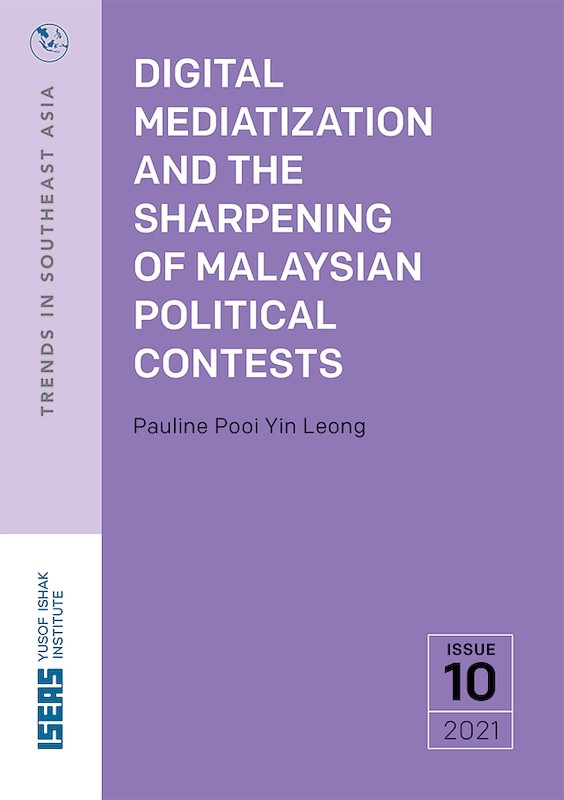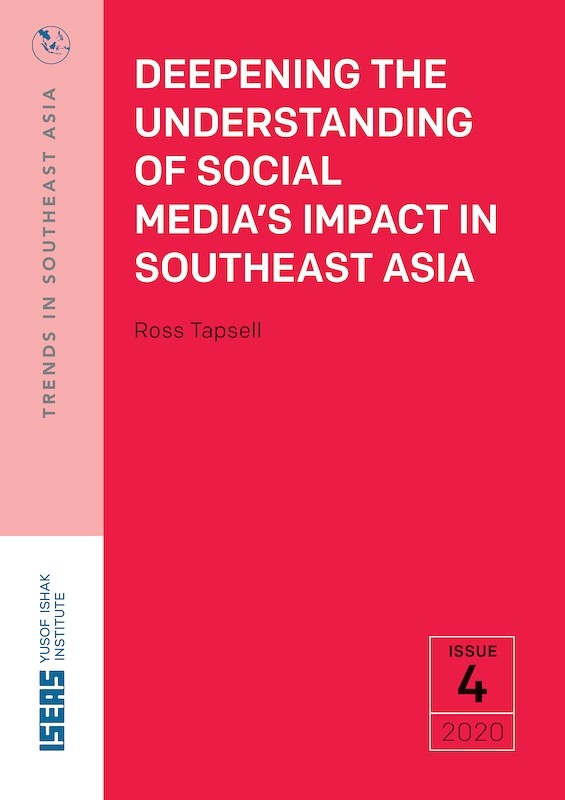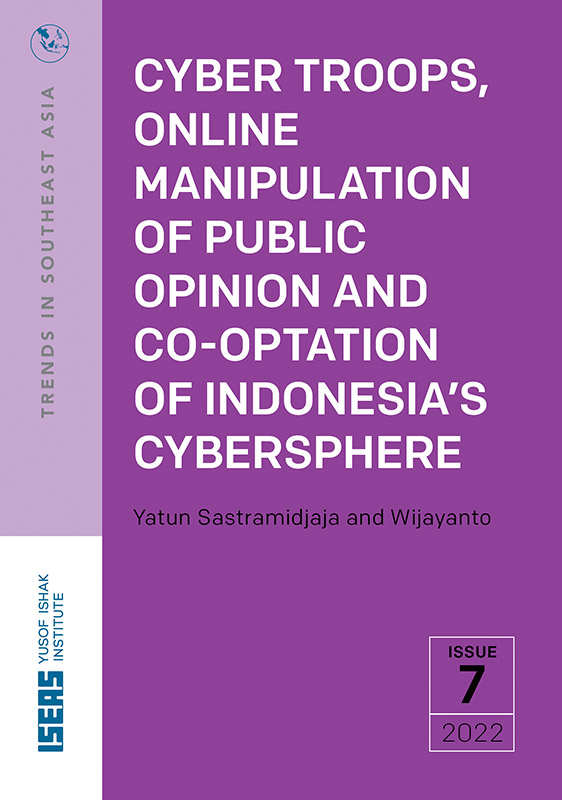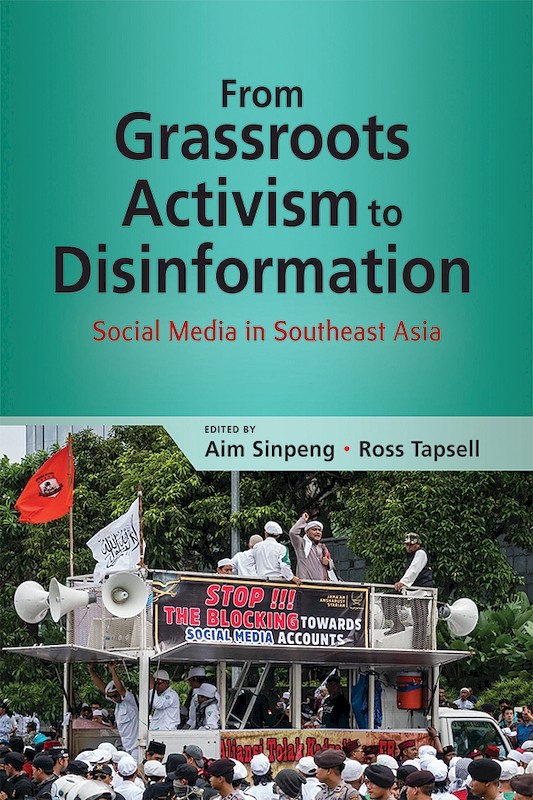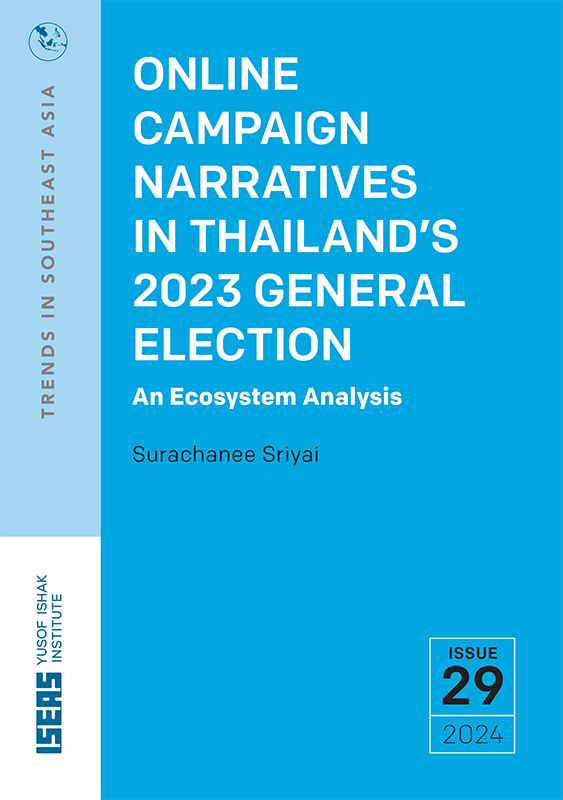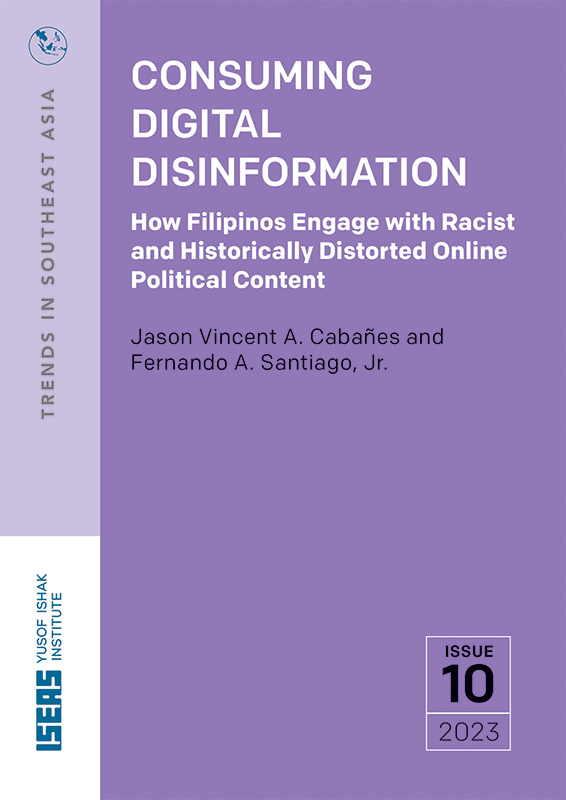Disinformation and Election Propaganda: Impact on Voter Perceptions and Behaviours in Indonesia’s 2024 Presidential Election
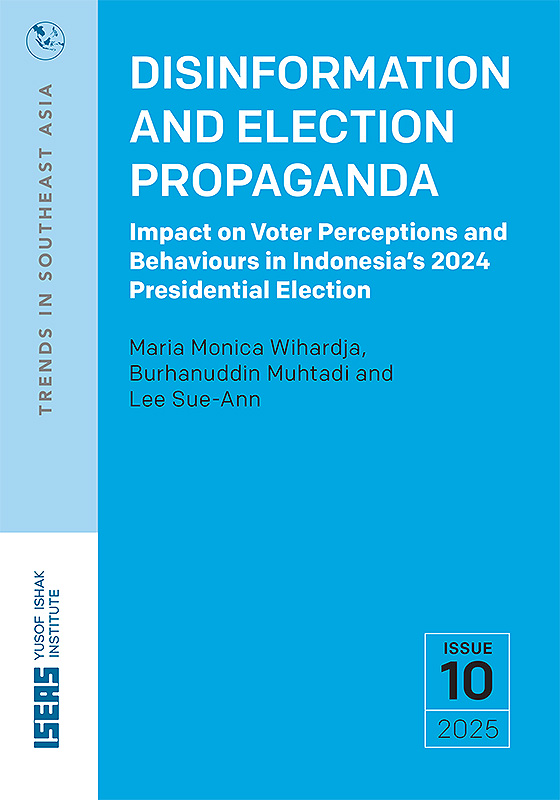
Date of publication:
2025
Publisher:
ISEAS – Yusof Ishak Institute
Number of pages:
49
Code:
TRS10/25
Soft Cover
ISBN: 9789815306675
About the publication
This study analyses the impact of social media election campaigning, disinformation and election propaganda on voters’ perceptions and behaviours in Indonesia’s 2024 presidential election. It assesses the influence of social media platforms and chat messaging apps as sources of election-related information on voters and their level of trust in these mediums. The study also assesses how exposed and susceptible voters have been to various disinformation and election propaganda narratives.
Our findings affirm traditional sources of communication like television (TV) and direct conversations with friends and family as being among the top sources of election-related news. The social messaging platform WhatsApp ranked second across all demographic groups. Significantly, the youth segment (15–24 years old) showed markedly different consumption habits, citing TikTok as its topmost important source of election-related news, followed by WhatsApp, TV and Instagram.
However, when it comes to trusted sources of information, all demographic groups scored social media platforms relatively lowly, citing TV and direct conversations with friends and family as their most trusted mediums for election-related news. TikTok was ranked tenth out of fifteen mediums as the most trusted, even amonyouth. Taken together, these findings suggest that the Indonesian population does possess fairly high levels of resilience, awareness and literacy regarding mis/disinformation online.
Nonetheless, concerns surrounding the use of social media platforms to propagate mis/disinformation and, increasingly, deepfakes remain notable but their impact is more nuanced and complex.
This study shows that merely being exposed to disinformation and election propaganda narratives does not necessarily sway committed loyalists and staunch supporters of a presidential candidate. The acceptance or rejection of specific disinformation and election propaganda narratives is contingent upon personality-based partisanship and allegiances to a particular candidate, corroborating the salience of confirmation bias, the phenomenon where individuals accept only information that is consistent with their political affiliation and pre-existing beliefs about their preferred candidate.
Among “swing voters” (those initially undecided or who are not staunch supporters of a presidential candidate), changes in exposure to disinformation or propaganda narratives are not enough to sway their votes. This study shows that for these voters, it is changes in beliefs in conspicuous election propaganda narratives that sway votes towards or away from a certain presidential candidate.
Contents
-
Disinformation and Election Propaganda: Impact on Voter Perceptions and Behaviours in Indonesia’s 2024 Presidential Election
[Whole Publication, ISBN: 9789815306682], by Maria Monica Wihardja, Burhanuddin Muhtadi, Lee Sue-Ann, authors

